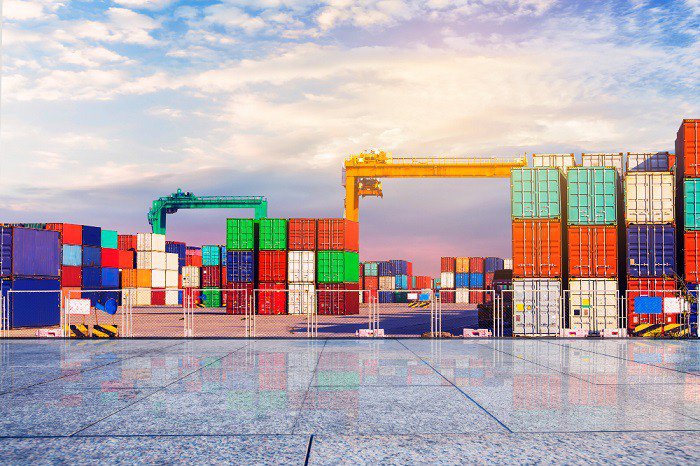Anything you need we are here to help



Businesses can expand their reach and enter new markets through the many opportunities international trade provides. The potential risks and difficulties involved must be carefully considered by businesses thinking about entering the global market from India. Asking the right questions before starting this journey can assist businesses in making knowledgeable decisions and avoiding potential pitfalls.
This blog post will look at five important questions every company should consider before beginning international trade in India.
How much are sea freight rates and ocean freight charges?
Understanding the cost of importing and exporting goods is one of the key elements of international trade. Ocean freight charges and sea freight rates significantly influence the profitability of businesses involved in international trade out of India. To ensure competitive rates and advantageous terms, it is crucial to research and compare various shipping providers. Additionally, getting quotes from several freight forwarders and using a digital freight marketplace can assist companies in identifying the most affordable shipping options.
How to Select the Appropriate Ocean Freight Shipping Technique?
For international trade to succeed, choosing the right ocean freight shipping method is essential. Businesses must assess variables like the type of products they produce, the nation where the products will be used, the urgency of the situation, and financial limitations. The two main methods for shipping ocean freight are full container loads (FCL) and less than container loads (LCL). FCL may be more affordable for bigger shipments and give you more control over the shipping procedure. However, LCL is appropriate for less-than-container-load shipments that only need a partial container. Businesses can make an informed choice based on their unique needs by weighing the advantages and disadvantages of each method.
How can supply chain efficiency be improved?
Successful global trade depends on effective supply chain management. To guarantee prompt delivery and cut costs, businesses must assess and optimize their supply chain processes. Examining aspects like inventory control, production scheduling, order fulfilment, and logistics coordination is required for this. Supply chain management software, for example, can be implemented to streamline operations, improve visibility, and facilitate efficient communication with manufacturers, suppliers, and customers. Businesses can boost their competitiveness in international trade by increasing the efficiency of their supply chains.
What Legal and Regulatory Conditions Must Be Satisfied?
Businesses from India must thoroughly understand the legal and regulatory requirements of both the exporting and importing countries before engaging in international trade. Learning about and abiding by the applicable customs laws, documentation requirements, import/export permits, tariffs, and trade agreements is crucial. Businesses can navigate the complicated legal environment and prevent potential fines or delays by consulting with legal experts or working with a customs broker. Respecting legal and regulatory requirements promotes trust with international partners and guarantees efficient trade operations.
How Can Risks Be Minimized and Payment Security assured?
Risks associated with doing business internationally include buyer non-payment or late payment, political unrest, currency fluctuations, and trade barriers. To safeguard their financial interests, businesses should evaluate and reduce these risks. It is crucial to conduct exhaustive due diligence on potential global partners, evaluate their creditworthiness, and set up explicit payment terms and conditions. Using safe payment techniques like letters of credit or escrow services can add an extra layer of security. Additionally, businesses can be protected from unforeseen events by obtaining adequate insurance coverage against various trade risks.
Conclusion
While engaging in international trade from India can be rewarding, it necessitates careful planning and thought. Businesses can successfully navigate the obstacles and take advantage of the opportunities presented by global trade by asking the right questions and doing thorough research. Successful international trade operations depend on several factors, including understanding ocean freight rates, the right shipping options, optimizing supply chain efficiency, adhering to legal requirements, and risk mitigation. With the right planning, businesses can broaden their horizons and open up new growth opportunities in the international market.
Remember that the world is your market and that trade can achieve success.
How you navigate the complexities of international trade is revolutionized by our digital freight marketplace. Choose the best shipping method, optimize your supply chain, ensure compliance with legal requirements, and reduce risks by learning about the best ocean freight charges and rates. Gaining a competitive edge and expanding your reach confidently are possible when FreightMango is by your side.

